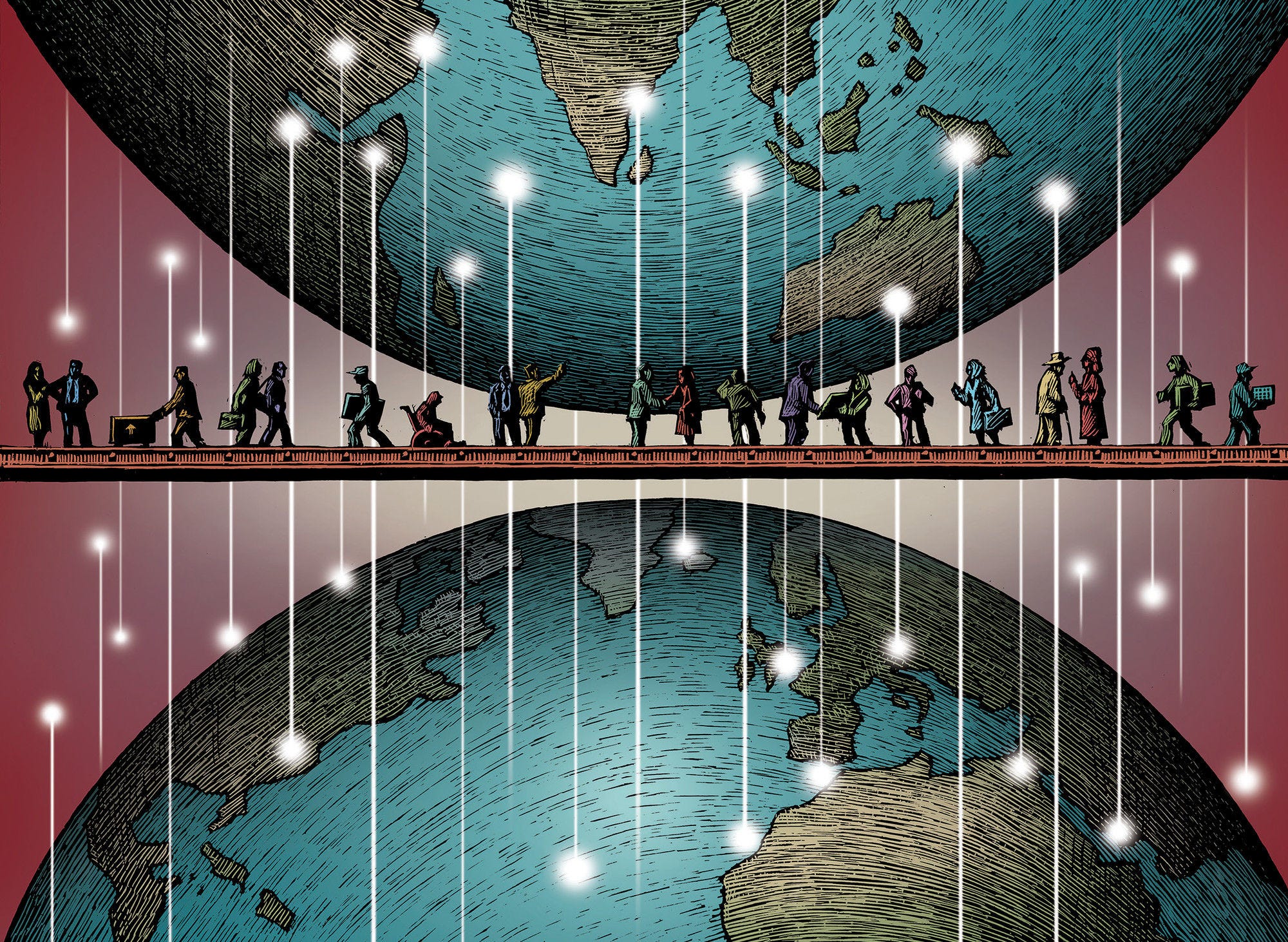In 2019, Austria received 82 000 new immigrants on a long-term or permanent basis (including changes of status and free mobility), ‑6% compared to 2018. This figure comprises 70.2% immigrants benefitting from free mobility, 7.4% labour migrants, 12.8% family members (including accompanying family) and 9.1% humanitarian migrants. Around 3 600 permits were issued to tertiary-level international students and 11 000 to temporary and seasonal labour migrants (excluding intra-EU migration). In addition, 320 000 intra-EU postings were recorded in 2019, an increase of 170% compared to 2018. These posted workers are generally on short-term contracts.
Romania, Germany and Hungary were the top three nationalities of newcomers in 2019. Among the top 15 countries of origin, Germany registered the strongest increase (1 400) and Hungary the largest decrease (‑500) in flows to Austria compared to the previous year.
In 2020, the number of first asylum applicants increased by 21.8%, to reach around 13 000. The majority of applicants came from Syria (5 100), Afghanistan (2 800) and Morocco (700). The largest increase since 2019 concerned nationals of Syria (2 400) and the largest decrease nationals of Iran (‑400). Of the 10 000 decisions taken in 2020, 65.1% were positive.
Emigration of Austrians to OECD countries decreased by ‑5% in 2019 to 15 000. Approximately 41% of this group migrated to Germany, 19% to Switzerland and 9% to Turkey.
In 2019, the points system of the Red-White‑Red (RWR) card was amended with occupational experience receiving more weight and less to age, while English proficiency was introduced. The highly skilled group was further differentiated by adding very highly skilled (a wide variety of graduate engineers; economic trustees, physicians) for whom a fast track immigration path was opened. The shortage list for RWR cards was extended in January 2020 by an additional 11 occupations bringing the total to 56. Other occupations, mostly in tourism, were added to local shortage lists in all provinces except Vienna and Burgenland, resulting in an annual cap of 300 additional permits in total. The requirement of proof of a legal title to accommodation was abolished in the RWR card scheme at the end of 2020.
In July 2020, the transition regulations relative to labour mobility of Croatians came to an end after seven years, opening free access to the Austrian labour market for migrants from Croatia, including unskilled workers.
In response to a shortage of seasonal staff, partly as a result of travel restrictions imposed by countries of origin, in 2020 farm workers were declared essential workers and Eastern Europeans were allowed in for harvesting jobs. In addition, care‑workers were flown in from Bulgaria, Croatia, and Romania with some employers offering bonus payments for care‑workers who were prepared to stay longer.
In December 2019, the Aliens Police Act 2005 was amended, temporarily suspending the return of asylum seekers in apprenticeship training to their countries of origin in case of a negative decision. Asylum seekers with a negative asylum decision were allowed to finish their apprenticeship in Austria. Thereafter, the legal situation of the individual case will be assessed again and in case of no change in this regard, the asylum seeker has to fulfil his/her obligation to leave Austria.
Following legislation in 2019, in effect from the beginning of 2020 a Federal Agency for the support of asylum seekers was established by the government. The Agency, a private limited company, has the exclusive responsibility for the provision of accommodation, care and legal counselling for asylum seekers in the federal reception system. The Agency is expected to work at full capacity as of 2021.
In response to the integration challenges posed by the COVID‑19 pandemic, the expert council on the integration of migrants (to the Minister of Integration in the Federal Chancellery) drew up a policy brief, suggesting steps to improve the labour force participation of migrants and thereby stabilise their income. Measures proposed include accelerated digitalisation and the implementation of automation in work processes, up- and re‑skilling of low-skilled migrants and facilitation and promotion of education and training of migrant women.
An amendment of the Citizenship law allows direct descendants of individuals persecuted under Austrofascism and National Socialism to acquire Austrian citizenship in a simplified procedure since September 2020, without having to abandon their current citizenship.
For further information:

